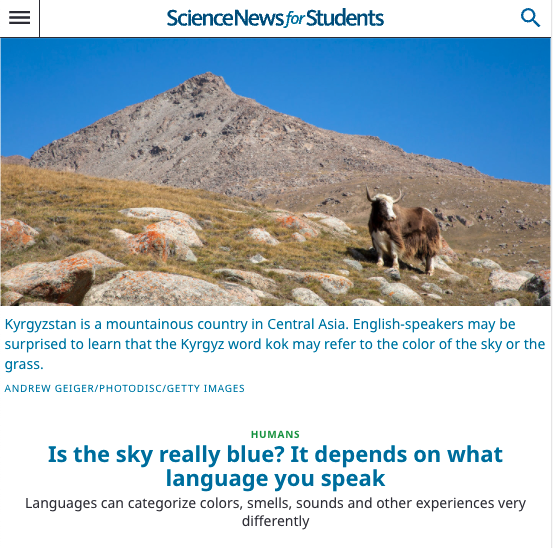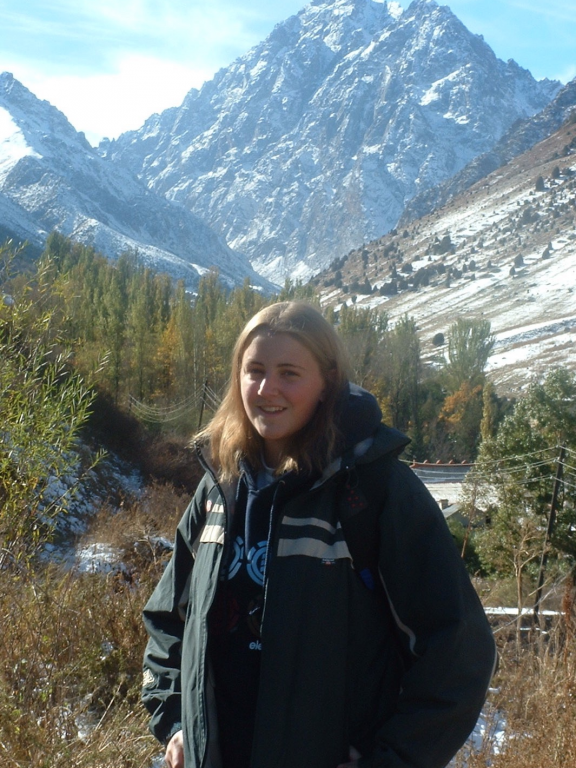This is me in the mountains of Kyrgyzstan. I served in the Peace Corps here from 2004-2006. I taught English to middle and high school kids. I also learned to speak fluent Kyrgyz and picked up some Russian, too. I’ve always loved languages. My dad lived in Germany for quite a few years during his childhood and speaks fluent German. I remember when I was 6 or 7, he told me the German word for “tree” is “baum.” And I said something like, so they call trees “baum?” And he said, no, that thing in front of you IS “baum” to a German speaker. It’s not a tree.
Something clicked inside me. I was astonished. I wanted to know how all the world’s languages talked about everything. Honestly, my desire to be bilingual is one of the main reasons I joined the Peace Corps in the first place.
Kyrgyz revealed many ways languages could work that I hadn’t expected. The sentence order is very different from English and you can’t build clauses in the same way. For example, you can’t say “the girl who opened the door looks familiar,” you’d say, “the opened-the-door girl familiar looks.” Another interesting difference is that there are different words for older sister and younger sister, and for older brother and younger brother. And these words also apply to older aunts/uncles/cousins and younger nieces/nephews/cousins.
Perhaps the most unexpected difference, though, was color. I heard people using the Kyrgyz word that meant “blue” to talk about “green” things. They talked about the “blue” sky, but also about “blue” walnuts and “blue” grass and “blue” tea. Clearly, the word for blue didn’t translate exactly. It was actually a shade that linguists call “grue” — a combination of green and blue. Interestingly, Russian — the other language I learned — has two different words for blue. They roughly translate to light blue and dark blue, but they are as individual to a Russian speaker as pink and red are to an English speaker.
In my latest article for Science News for Students, I explore why differences like this happen. While writing this, I discovered that some languages have abstract categories for different smells! That’s right, they group smells together into categories just as English speakers group colors into basic shades.
Is the sky really blue? It depends on what language you speak
Science News for Students, March 17, 2022


